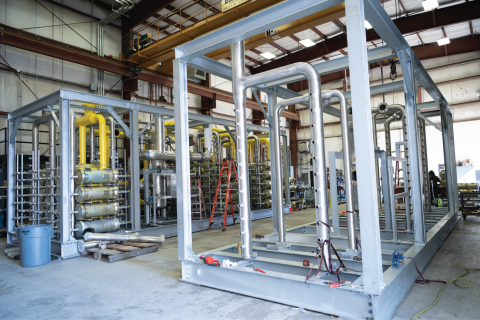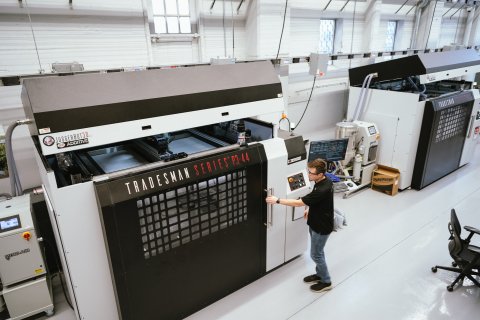Institutes are pioneering innovations that will redefine manufacturing facilities in remarkable ways. Factories of the future will harness hydrogen and other green energy sources, utilize 3D printing for customized production, and incorporate advanced composite materials that are both lighter and stronger. These facilities will function as self-sustaining ecosystems, efficiently managing water, power, materials, and waste. Additionally, many will evolve into micro-factories, strategically located closer to raw materials or end users, a trend known as distributed manufacturing. These advancements are setting the stage for a more sustainable, flexible, and efficient manufacturing landscape. Here are two major initiatives that are shaping these future facilities.
Evolving Chemical Processing Toward Modular Production

The RAPID Institute is focused on saving energy and reducing pollution in industrial processes that involve chemical reactions, such as oil and gas refinement. Most industrial chemical processes require batch production, which is often much more expensive than continuous processing as it includes starts and stops, heating and cooling of materials, and the purging of excess chemicals, gasses, or byproducts. RAPID and its ecosystem worked with a member company to convert a legacy process for chemical dispersants from batch to continuous, building a production module about the size of a shipping container. The client has been able to make a better product while greatly decreasing capital requirements, bringing down operating costs, eliminating emissions, and reducing atmospheric heat loss by 10 times.
Learn more about RAPID
Roadmapping the Future for Castings and Forgings

Metal castings and forgings are among the most critical supply chain items for our national defense and economic health. America Makes, the Additive Manufacturing Institute, and its stakeholders embarked on a project to see how the integration of 3D printing could help the casting and forging industries achieve improvements in efficiency, design flexibility, and product quality. The group identified challenges impacting their supply chains, how additive manufacturing could mitigate those issues, and the investments needed to integrate additive manufacturing into casting and forging operations.
Learn more about America Makes

